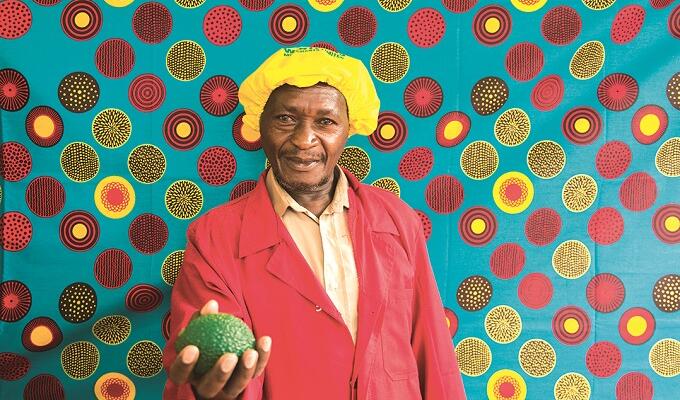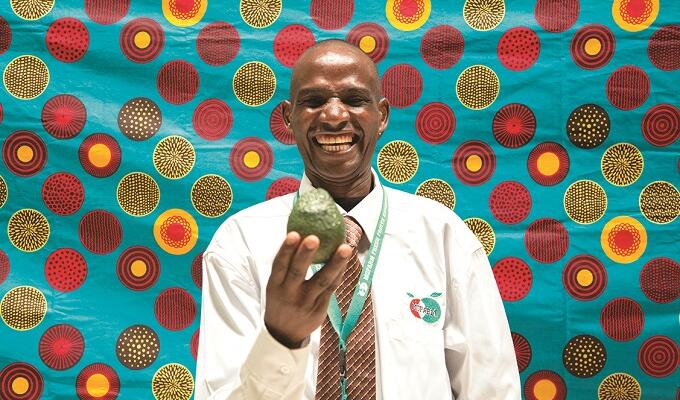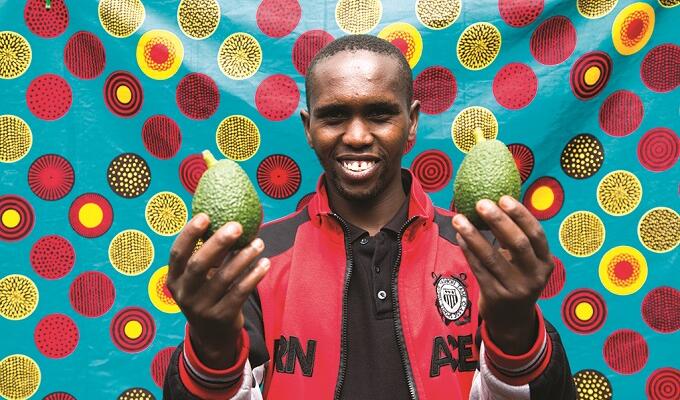



Reaping the benefits of Kenya’s green gold
Ensuring quality certification has led to a boom in Kenya’s avocado industry, creating jobs and raising incomes
Touted as a superfood and loved by hipsters from Tokyo to San Francisco, the humble avocado has in recent years become one of the world’s favourite foods. For farmers in rural Kenya and in the country’s export sector this ‘green gold’ has helped boost incomes and job creation.
In fact, Kenya overtook South Africa as the biggest African exporter of avocadoes, export data for 2017 showed. It exported 51,507 tons of avocadoes that year worth an estimated $78 million, according to the International Trade Centre’s (ITC) TradeMap. Another victory for Kenyan farmers was South Africa’s decision to lift its import ban on their avocados.
The hype around superfood and hipsters aside, the secret behind Kenya’s avocado success can be summed up on one word: quality.
To tap into foreign markets – especially lucrative ones such as major European supermarket chains – avocados need to be formally certified for quality. The most prevalent certification for the European market is GLOBALG.A.P., a private standard which sets out requirements for farming processes and food safety. Complying – and proving compliance – costs money and is time consuming. Doing so, however, can lead to a sea change for growers and exporters.
To help Kenyan farmers and companies tap into the global avocado value chain, ITC has worked with actors along the value chain. This included providing training on harvesting techniques (including health and safety issues) and altering business models. For example, this meant cutting off brokers, thereby giving farmers and exporters more control over their produce and greater ownership of the avocado value chain.
‘What this project has realized is tangible,’ said John Mwaniki Gitau, chairman of the Gaichanjiru Avocado Farmers Cooperative in Muranga county ‘The volumes of avocadoes reaching markets – especially the European Union, have gone up, meaning higher incomes. As a community we have gained a lot from participating in the ITC project. Our farmers are very happy, we are creating employment for our young people and we have increased membership in the cooperative to 50.’
Indeed, the sector appears to be growing by leaps and bounds. From 2014, when ITC started the Netherlands Trust Fund III (NTF III) project for the Kenyan avocado sector, until 2016, exports for participating companies doubled from 6,143 tons per year to 12,141 tons. In addition to practical and theoretical training towards achieving GLOBALG.A.P. certification, this was also achieved through participation at trade fairs and business-to-business events across Europe and in the Middle East.
‘The price of avocados in the market has gone up and that cascades down to the farmers who grow, so they also get good prices,’ said Hossein Machuki, chief executive officer of the Fresh Produce Exporters Association of Kenya. ‘That has resulted into the phrase that avocado is becoming the “green gold”.’
That good fortune is reflected the prices that farmers now command per avocado sold, Gitau said. ‘In the old days we were selling avocado for about three shillings each,’ he said. ‘But now we getting between 18 and 20 shillings per avocado and the best in class can fetch around 22 shillings apiece.’
For the many farmers across Kenya now benefiting from participation in a global food chain, the impact has been significant. For Caroline Murungi, a farmer and member of the Gachocho Mixed Farming Farmers Project, also in Muranga county, participation in the NTF III project has been life-changing.
‘Coffee was the major cash crop but when prices dropped we were not able to send our kids to school,’ she said. ‘Thanks to avocado trees that my father planted we were able to participate in the ITC project, which means that we now have higher income and kids are able to attend school.’
In response to the sudden growth in demand, several of the companies that participated in the NTF III project invested and upgraded their packing facilities, adding cold rooms, grading machines in response to growth. They also invested in the farmer groups, providing support to build sheds, storage and other facilities that helps improve quality and meet GLOBALG.A.P. requirements.
According to Japheth Mbandi, a technical manager with Keitt Exporters, the organization of farmers into collectives and training in obtaining standards have been key to Kenya’s avocado success.
‘The advantage of certifying smallholders to the Global G.A.P. standard has been crucial in achieving today’s export figures,’ Mbandi said. ‘Having started with small groups we are now replicating the certification process with other producers.’
So while the future looks bright for the Kenyan avocado industry, there are still risks of setbacks. Among them is climate change. Much of Kenya suffered from drought the first half of 2018, which is certain to have implications volumes and incomes. Despite this, optimism is what prevails among farmers and exporters.
‘The best thing about avocado is that, one, it’s a quality fruit,’ said Patrick Kagumba Muchemi, a field operations coordinator for exporting company Mavuno Organics. ‘So as a company we benefit from doing avocado and hope to continue getting good returns so we can continue transferring those returns to the farmers we work with.’
Mwaniki Gitau, too, has expectations for the future: ‘We are hoping for the best!’



